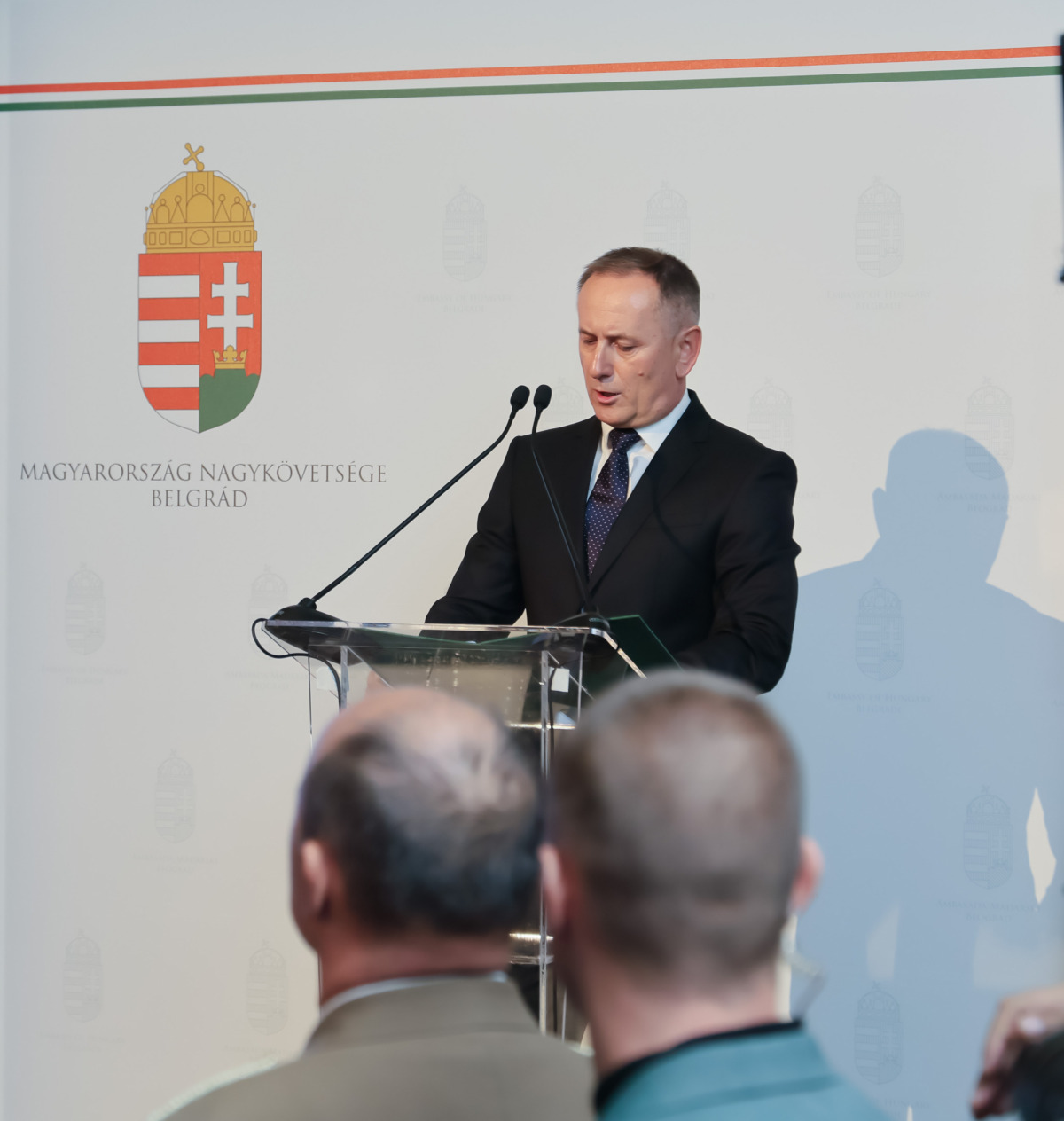Building Bridges
H.E. József Magyar, Ambassador of Hungary in Serbia, highlights Hungary’s Resilience, EU Vision, and Deepening Strategic Ties with Serbia
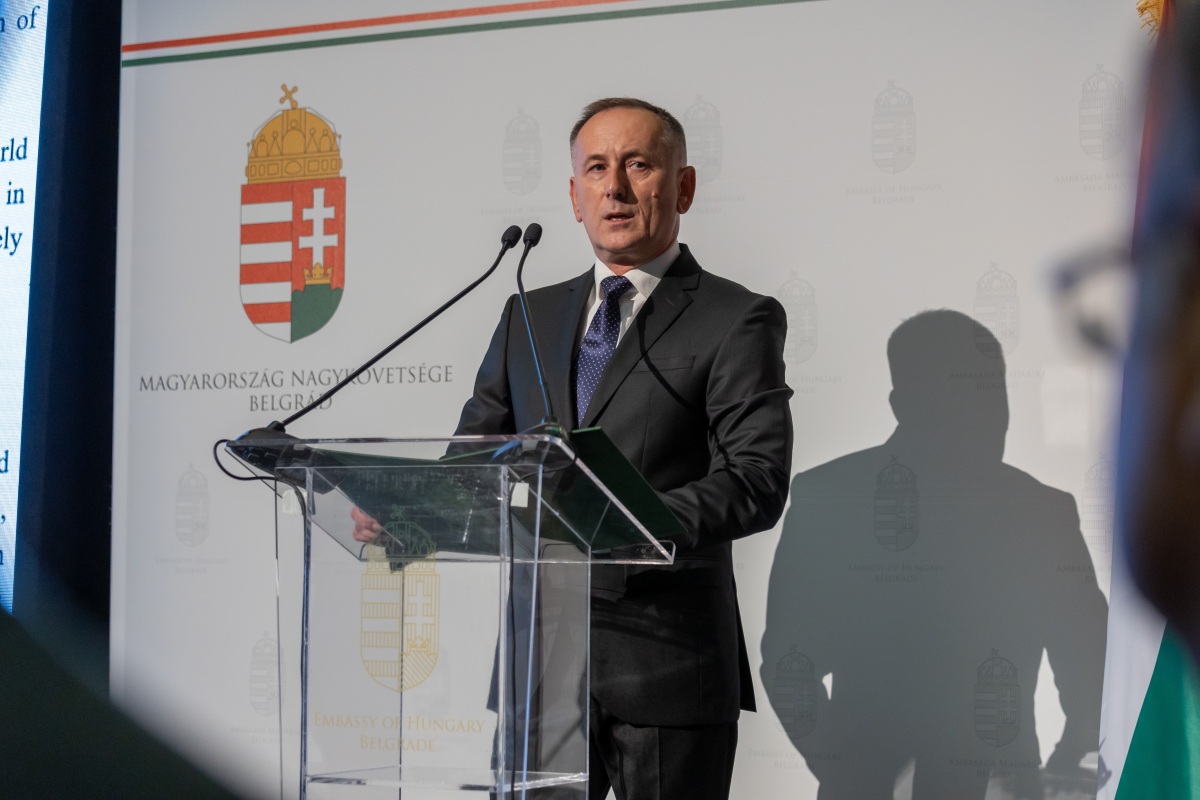
On the occasion of Hungary’s National Holiday, the Hungarian Ambassador to Serbia delivered a compelling speech in Belgrade, highlighting the enduring friendship and strategic partnership between Hungary and Serbia. Through reflections on shared history, economic collaboration, and Hungary’s unwavering support for Serbia’s European integration, the Ambassador underscored the importance of unity and cooperation in building a prosperous future for both nations.
I consider it a great honour to greet our dear guests in such a large number at our reception organized on the occasion of Hungary’s National Day, here in Belgrade.
October 23, 1956 is the national holiday of Hungarians living in the free world. On this day, Hungarians all over the world remember the revolution that broke out in Budapest 68 years ago with a pure heart and a strong sense of belonging. To live in freedom instead of dictatorship, in independence instead of subjugation, in a democratic country with leadership of their freely elected leaders instead of tyranny.
Therefore, respect to the heroes of ’56!
The Hungarian people really suffered in the 20th century. After the two world wars, what remained intact in 1945 was destroyed in Budapest in 1956, followed with, whether you liked it or not, building of communism. With our past of 33 years of oppression, we became one of the first members of the Euro-Atlantic integration family, joining NATO for the first time 25 years ago. In 2004, exactly 20 years ago, we became a member of the European Union, and we now hold the position of president of its Council for the second time.
Hungary strongly supports Serbia’s EU accession
The founding fathers made the European Community a success by creating the internal market and the interoperability of borders, and then we continued to build it by adhering to the principle of “united in diversity”. Today, the old continent is once again facing serious challenges. Its peace is made uncertain by the protracted war in our neighbourhood, Ukraine and the Middle East. The European Union’s competitiveness, energy and green transition, migration and future electromobility policies are now characterized by a difficult-to-interpret unity. And while we agree that enlargement has become one of the most successful policies of the European Union, which is developing peacefully and securely, hardly any progress has been made in this area in the last 10 years.
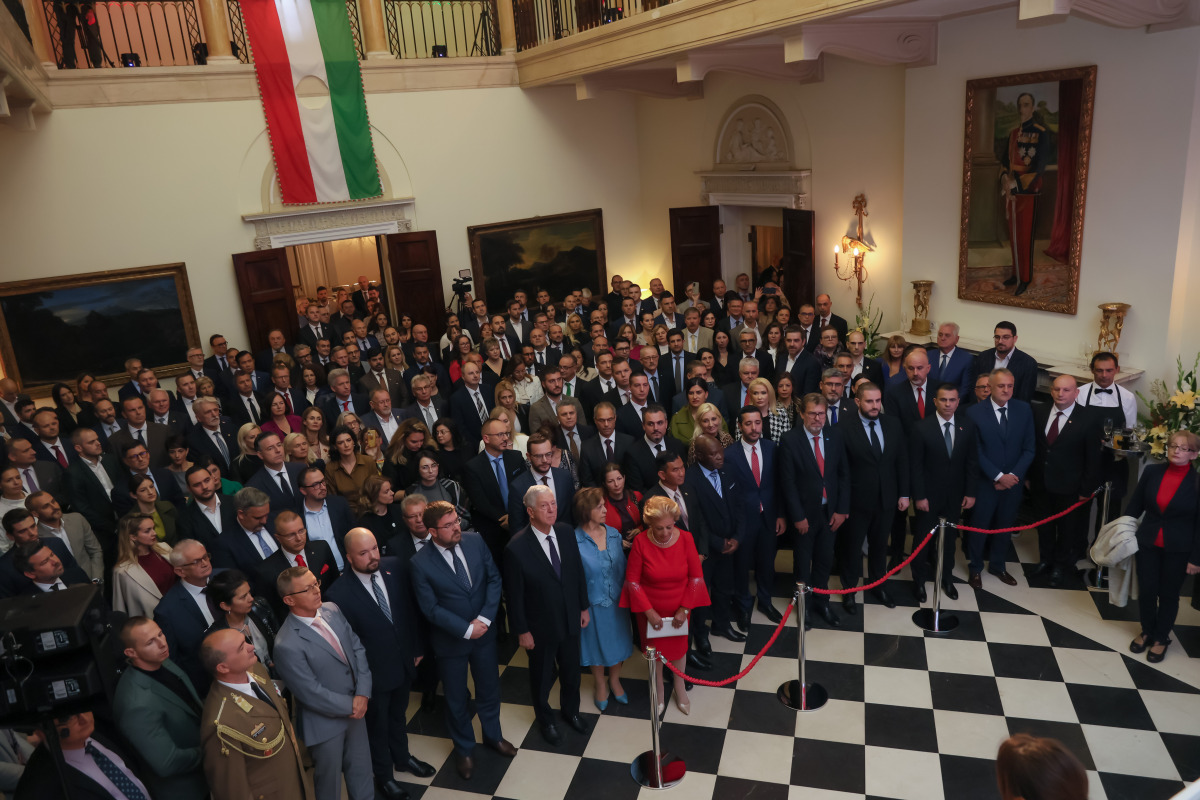
That is why the priorities of the Hungarian EU presidency in the second half of 2024 were to strengthen the competitiveness of the Union, the defence industry, a cohesion and farmer-centered agricultural policy, curb illegal migration and, above all, a consistent and merit-based enlargement policy. Hungary’s foreign policy is clear: it stands resolutely in favor of speeding up the accession negotiations with Serbia and the Western Balkan candidate countries. On the international fora, it cooperates closely with Serbia, whether it is about issues on the agenda of the UN or the Council of Europe.
The current Hungarian EU presidency represents a transitional institutional semester. In its first three months, we performed perhaps less spectacular events, but with 14 ministerial council meetings, 27 COREPER II and COREPER I ambassadorial meetings and 645 working group meetings, serious work was still going on. 90 of our 172 presidency events have already been held, and 10,000 foreign guests have participated in our events in Hungary. And the top is yet to come: in two weeks, Budapest will host the summit of the European Political Community and the informal meeting of the European Council, and in December we will organize the EU – Western Balkans summit.
In the last 10 days of the presidency, positive processes have started: the European Commission agreed with the countries of the Western Balkans on the support program called Growth Plan, it’s first payments will begin shortly, and an intergovernmental conference with Albania and it’s opening of the first cluster took place. We strongly support an intergovernmental conference and the opening of cluster 3 to take place with Serbia during the Hungarian semester. I can assure our Serbian friends that the Hungarian presidency will provide all possible help and assistance. At the same time, we congratulate Serbia on its economic growth, which is an exceptional achievement even compared to some European countries. That is why we say that it would only benefit the European Union to include Serbia as one of its members in a short period of time in this challenging world.
Bilateral trade with Serbia exceeded €5 billion last year
These things are particularly important for Hungary: Serbia is our good neighbor, we have formed a strong friendship with its people, and the leaders and governments of the two countries are guided by thinking in strategic perspectives. We know the benefits of Serbia joining the EU. If we only think about barrier-free crossing of borders, the competitiveness of our region would be enhanced, and the mobility of Hungarian and Serbian people would increase exponentially instead of waiting at the border.
Relations between Hungary and Serbia reached a milestone this year. It has been a decade since the two peoples, overcoming their historical grievances, entered the level of reconciliation, good neighbourly relations, and then strategic cooperation. This year, the formation of the new Serbian government, Prime Minister Vučević’s message to Hungary during the presentation of the government program, and the fact that the Vojvodina Hungarian Association is a stable coalition partner of the current cabinet, as in previous government cycles, helped a lot. This also required good election results in December and June, which secured the Hungarian party 6 republican and 9 provincial parliamentary mandates, 8 governmental state secretary mandates, as well as the role of president of the Vojvodina parliament. Without the bridge role of the Vojvodina Hungarian and Hungarian Serbian communities, it would be difficult to plan our common future. The leaders of the two countries also take part in it: Serbian Foreign Minister Đuric’s first foreign trip was to Budapest in May, but Serbian defense, energy, European affairs and economic ministers also held talks in Budapest, while our interior and transport ministers visited Serbia several times.
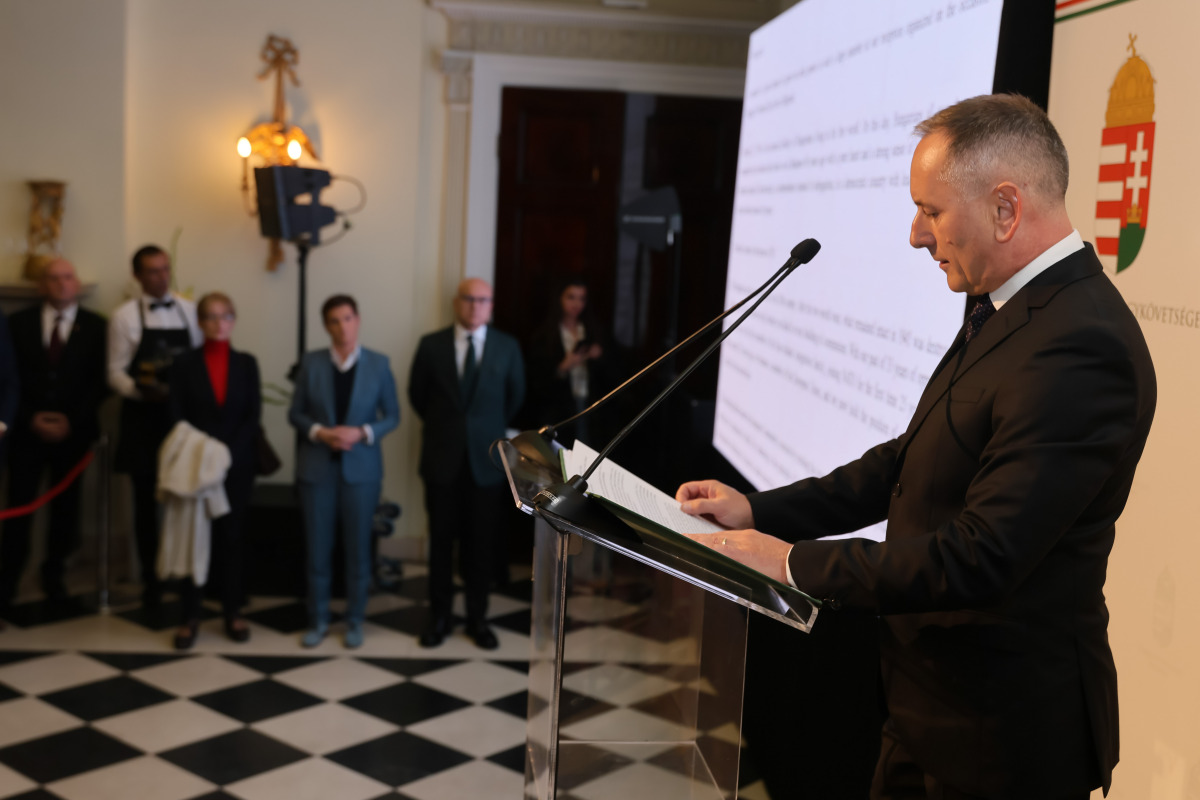
Our speaker of the National Assembly held talks in Belgrade 2 weeks ago, for which we thank the President of the National Assembly Ana Brnabić for her hospitality. Our Prime Ministers exchanged their views in Berlin last week, while President Vucic will meet Prime Minister Orbán Viktor today in Komárno. Two weeks ago, we held the 14th meeting of the Hungarian-Serbian Economic Joint Committee in Budapest, which began preparations for the Budapest meeting in November of the Hungarian-Serbian Strategic Council established in 2023.
In a few days, the President of the Republic of Hungary, Sulyok Tamás, will come to Serbia for an official visit. In August, in recognition of the strengthening of Hungarian-Serbian relations, President Aleksandar Vučić was awarded the highest state award.
Our close relations also have more recent results: our foreign trade was 5 billion euros last year. Hungary is Serbia’s fourth most important foreign trade partner, while among the countries of the Western Balkans, Hungary has the strongest business and trade cooperation with Serbia, with a ratio of 70%. Last November, the train service between Szeged and Subotica started. On the Hungarian side of the Budapest-Belgrade high-speed railway, we laid the last pair of rails of the 150 km main section two weeks ago, and passenger traffic between Belgrade and Subotica will start in Serbia at the end of November. We agreed on the construction of three new crossings and two highway connections. We have extended the opening hours of the small border crossings, and we will soon introduce one-stop passenger traffic control at the Röszke-Horgos highway crossing.
Hungary and Serbia’s ties are marked by strategic cooperation and key infrastructure projects
Our energy relations ensure a safe gas supply, and Serbia stores it in safety reserves in Hungarian storage facilities. We have created a Hungarian-Serbian-Slovenian electricity exchange, which will start operating in Budapest at the end of the year. In 2028, we will build the second 400 kV transmission line and we are conducting business-based negotiations to build a new crude oil pipeline. MOL Serbia opened its 73rd gas station in Serbia. The joint gas trading company SERBHUNGAZ started its work. The company Južna Bačka is strengthening its relationship with MVM, while MVM EGI is carrying out the renovation investment of one of the largest thermal power plants in Serbia in a joint consortium. The Hungarian company Pannonia Bio is building the region’s largest biogas plant in Serbia, and Duna Kút is renovating Belgrade’s clean spawning water supply system. OTP Srbija became the bank with the strongest capital concentration and the best digital service provider in Serbia, while two Hungarian companies have established serious cooperation with their Serbian business partners on the Serbian labour market.
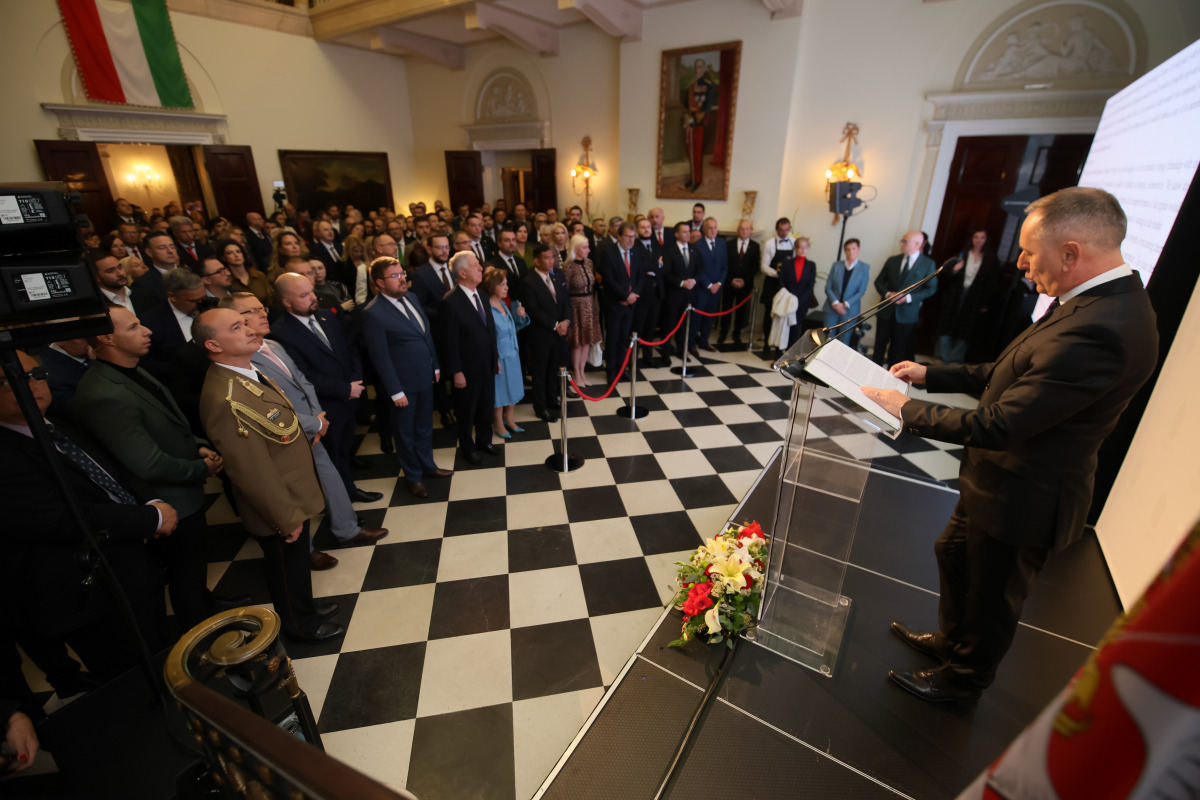
In addition, many businesses contribute to our economic cooperation. 35 of them are also sponsors of today’s event. We thank them for their cooperation with us. We are glad that your prominent business partners are also our guests tonight.
It is good that we also pay attention to each other’s in terms of leisure activities, which connect Hungarians and Serbs through tourism and sports. Both peoples have a rich tradition. Hungary’s tourism is expected to grow by 5.5% this year, to which Serbian visitors also contribute. We are happy about Air Serbia’s three daily flights to Budapest, which, among others, contributed to the visit of 14.5 million tourists to the Hungarian capital last year and 11.5 million in the first eight months of 2024. In addition to the top 10 most visited Budapest destinations in Europe, we also offer rich rural touristic attractions. We will present them briefly on the screens tonight, while we prepared a taste of our Hungarian heritage dishes for our guests in the Hungarikum Tent set up for this purpose this year.
It is a good feeling that the two peoples are also strengthening each other in sports. Many coaches and players are in the other nation’s teams. We supported each other in this year’s Euro league for our soccer players. Our water polo players competed together at the Paris Olympics, at which Serbia became Olympic champion again, as did Novak Djokovic. Congratulations to them. But we are also happy that Adriána Világos made the hearts of Serbs and Hungarians beat together this August.
The team of the Hungarian Embassy in Belgrade did a serious job again this year, for which I thank my colleagues, but I also thank all our partners and friends in Serbia for their openness and our truly successful cooperation.
Finally, I would like to thank my wife, Laura, for her understanding and patience with my dynamic and versatile work as the ambassador of Hungary in Belgrade.
I raise my glass to the success of Hungary and Serbia, to the flourishing relationship between Hungary and Serbia.
